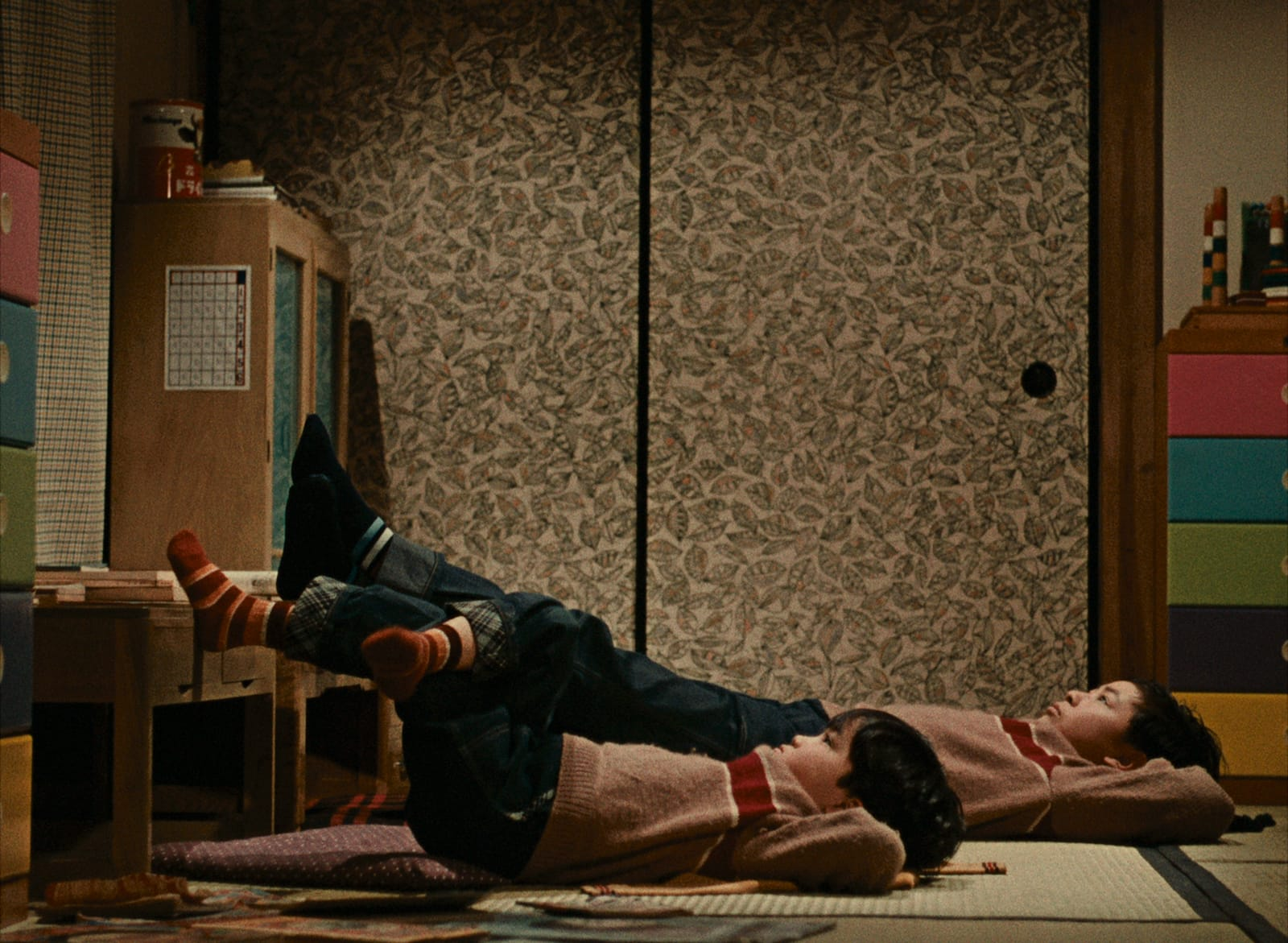Good Morning

Good Morning is the wildcard in Yasujiro Ozu’s career, the film that looks least like all his others, and one of the few where he sees the world through childrens’ eyes rather than those of an old man.
For many years, Ozu’s films were rarely seen outside Japan. Their minimal narratives and idiosyncratic style resembled few other films, and distributors feared they were “too Japanese” for international audiences. During the 1950s and 1960s, most of his work was centered around the same motif: the attempt by an aging parent to marry off a dutiful daughter so that she could begin to live her own life. Donald Richie characterizes their point of view as “sympathetic sadness,” the Japanese concept of mono no aware: the perspective of a weary, relaxed, even disappointed observer, perhaps someone approaching death.
But with Good Morning, Yasujiro Ozu visits suburbia and comes back a happier person. He plunks us down into a new Japan, a bright, peppy place where American cultural influences have seeped into everyday life. The plot revolves around the ups and downs of suburban middle-class life in a small subdivision, where tiny houses are surrounded by white picket fences and filled with colorful furniture and appliances. Housewives bounce between homes, exchanging food, drink, and sometimes cruel gossip. Kids walk in and out of their neighbors’ houses to watch sumo wrestling on TV. TV, in fact, is really at the center of the story. Mr. Hayashi won’t buy a set, worrying that “TV will produce 100 million idiots.” Desperately wanting one, the Hayashi children first practice passive resistance, then escalate to screaming and yelling, and finally go on a silence strike.
In fact, though it is nominally a remake of Ozu's 1932 silent film I Was Born, But. . ., Good Morning sometimes feels remarkably like American TV sitcoms of the same period (except for the recurrent flatulence gags). It’s full of stock characters: Mr. Hayashi, the older, distracted father (played by Chishu Ryu, said to be Ozu’s alter ego, who’s present in most of his films); an avuncular bachelor, in love with the children’s aunt; gossipy neighbors, who cause great pain to Mrs. Hayashi over a matter of missing club dues; and a shameless grandmother, who can’t be intimidated by impatient relatives or sinister door-to-door salesmen. Best of all are the Bohemian neighbors, who lounge around in pajamas during the day, have posters for The Defiant Ones on their wall, and truck through the alleys singing scat.
But Ozu’s keenest critique is directed towards Japanese culture. Though most of his films are built around the banal, ordinary dialogue of daily life, here he criticizes adults’ propensity for meaningless, space-filling conversations, the small talk that “acts as a lubricant in this world.” It’s the emptiness of adult chatter that turns the young TV wannabees into social critics. They don’t want to grow up into a world of meaningless rituals, a world where two twentysomethings in love can’t get beyond mannered talk about the weather.
Ozu’s films are meditative and relaxed, but never boring. They reveal themselves slowly and obliquely, through conversation, elegantly minimal camerawork, beautifully composed establishing shots and meticulous sound design. His low-mounted camera puts us into eye contact with his characters, and as we begin to understand their lives, we’re invited to our own philosophers, too. I like to think that his mix of minimalism, humor and everyday life will outlast today’s synthetic, effects-driven cinema, and maybe even prefigure the cinema of the future.



